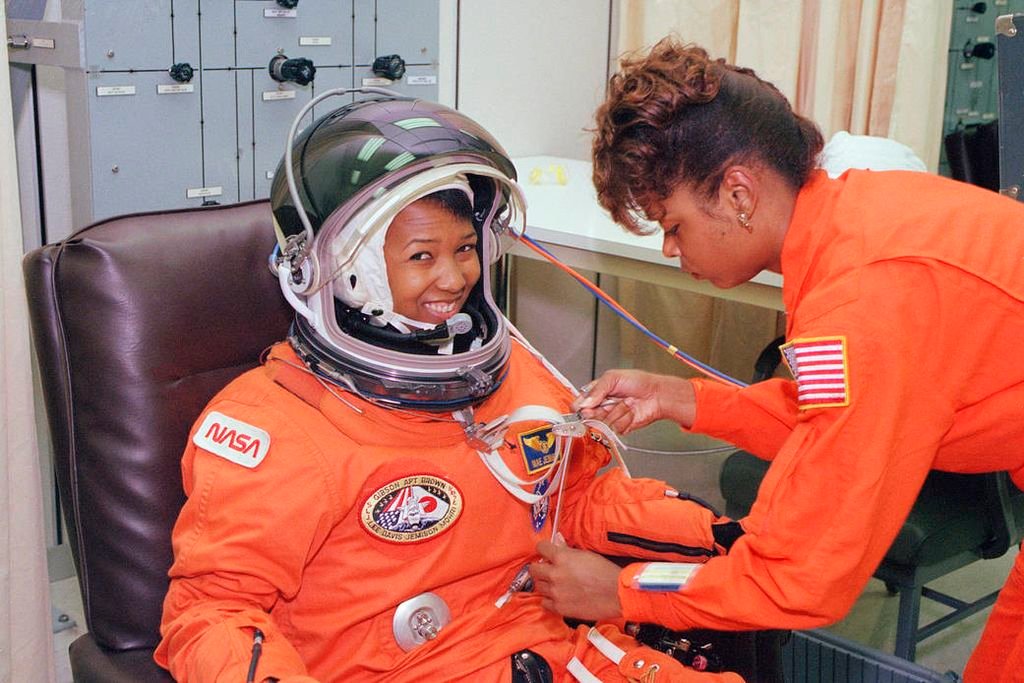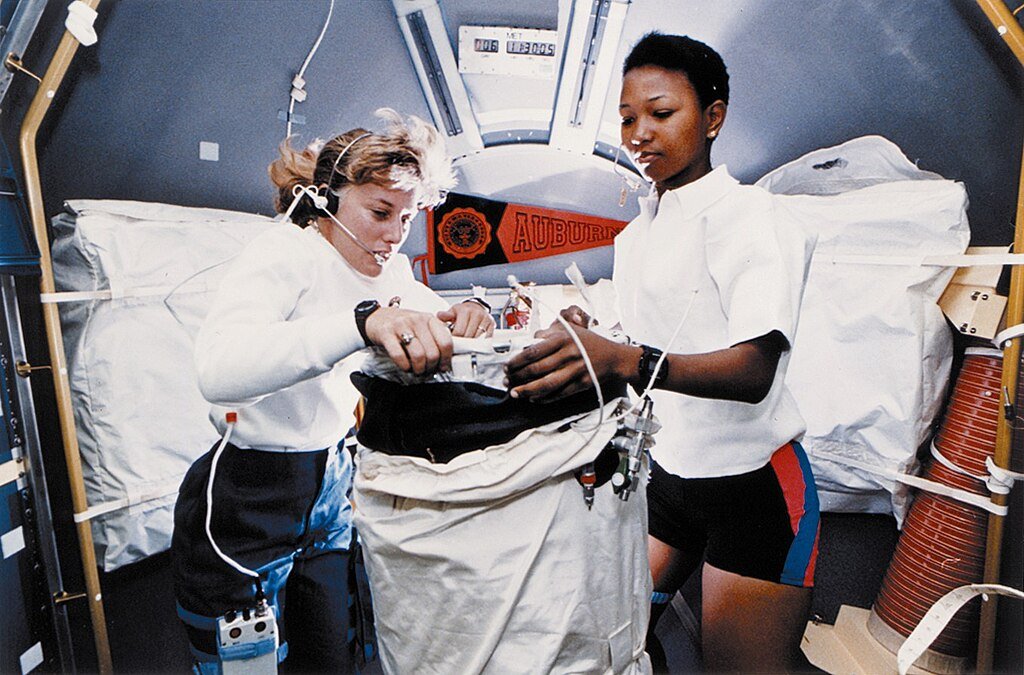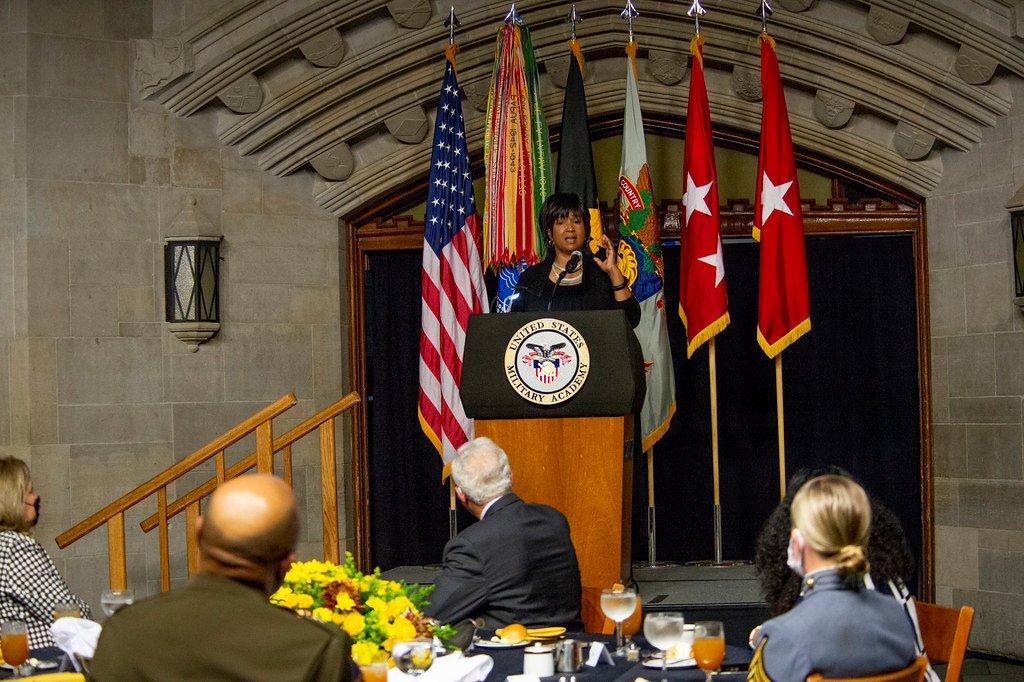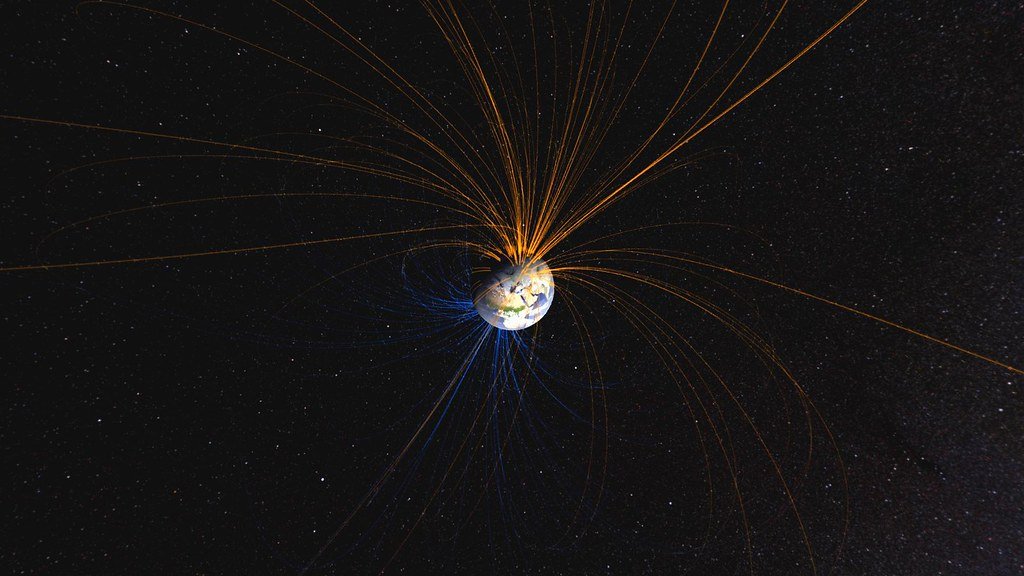Dr. Mae Jemison, renowned for breaking barriers as the first African American woman in space, was born on October 17, 1956, in Decatur, Alabama. Growing up in Chicago, Illinois, Mae displayed an early interest in science and the arts. Encouraged by supportive parents, she pursued an education that combined her scientific curiosity with her artistic sensibilities. Jemison enrolled at Stanford University at just 16 years old, where she obtained a Bachelor of Science in Chemical Engineering and fulfilled the requirements for a Bachelor of Arts in African and African-American Studies in 1977. Her diverse educational background laid the foundation for a unique career path that blended scientific pursuit with a commitment to social change.
Medical Career and Humanitarian Efforts

After Stanford, Jemison furthered her education by earning a Doctor of Medicine degree from Cornell University in 1981. Following her medical training, she worked as a general practitioner and later as a medical officer for the Peace Corps in Liberia and Sierra Leone. During her time in West Africa, Dr. Jemison was responsible for health care delivery and logistics, utilizing her skills to improve public health. Her humanitarian work underscored her dedication to utilizing science and medicine to uplift underserved communities.
Becoming the First African American Woman in Space

Dr. Jemison’s path to space began with inspiration from the Apollo missions and science fiction, both of which emphasized her dream of traveling beyond Earth. In 1987, she was selected for NASA’s astronaut program, after initially applying in 1983. Her hard work and perseverance culminated in her historic journey aboard the Space Shuttle Endeavour during mission STS-47 in September 1992. As a Mission Specialist, she conducted experiments in materials processing and life sciences, research critical for understanding the effects of space on human biology.
Contributions to Space Exploration

Beyond her groundbreaking spaceflight, Dr. Mae Jemison has made significant contributions to the field of space exploration. Her work on Endeavour gave her a platform to emphasize the importance of science and space research in our daily lives. She has advocated for increased diversity in STEM fields and has worked to inspire women and minority students to pursue careers in science and technology. Dr. Jemison has highlighted the importance of international cooperation in space exploration, recognizing its potential to unify humanity in the quest to understand our universe.
Post-NASA Career and Advocacy

After leaving NASA, Dr. Jemison founded The Jemison Group, which developed new technologies and encouraged the integration of advanced technologies into daily life. Additionally, she founded the Dorothy Jemison Foundation for Excellence, named after her mother, which focuses on educational initiatives, including the science camp The Earth We Share. Dr. Jemison also led the 100 Year Starship project, funded by DARPA, aiming to make human travel beyond our solar system a reality within the next century.
Legacy and Inspirational Impact

Dr. Mae Jemison’s legacy extends far beyond her achievements in space. Her life’s work has inspired countless individuals to dream larger and challenge the status quo in science and technology. As a trailblazer, she remains a role model for aspiring scientists, particularly women and people of color, who see their dreams mirrored in her accomplishments. Through her continued advocacy for education and innovation, Dr. Jemison has left an indelible mark on the world, proving that the sky is truly not the limit.




